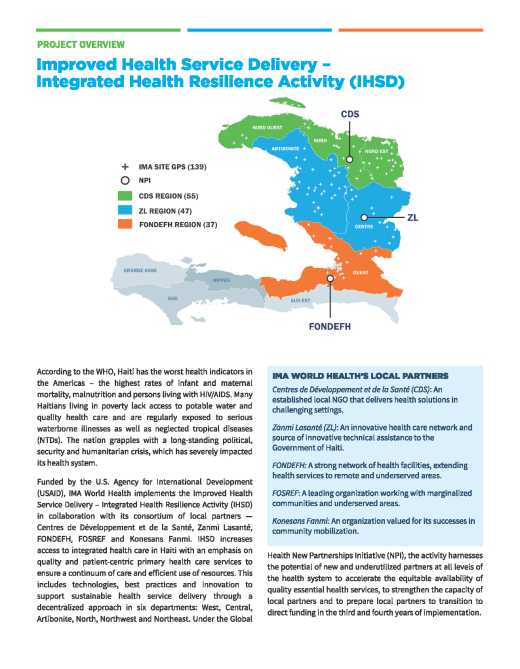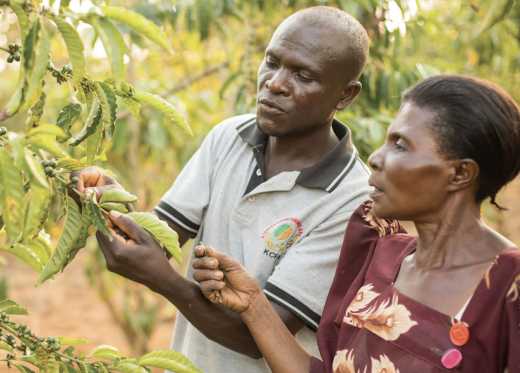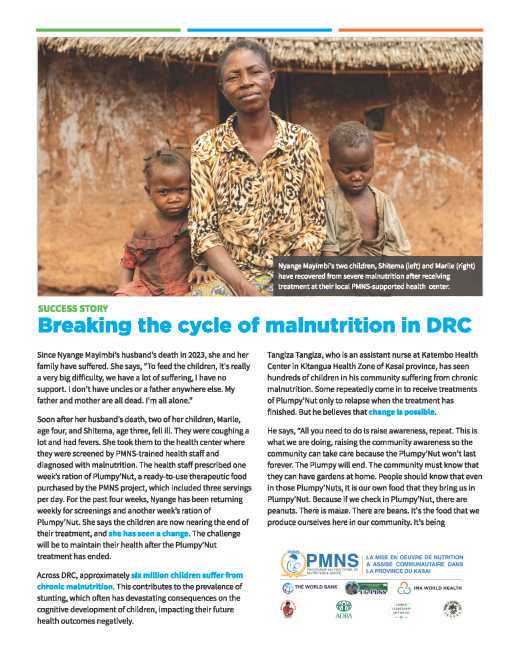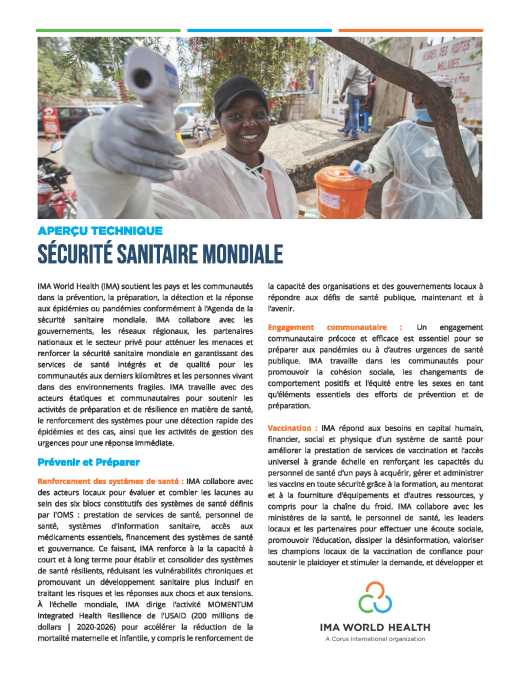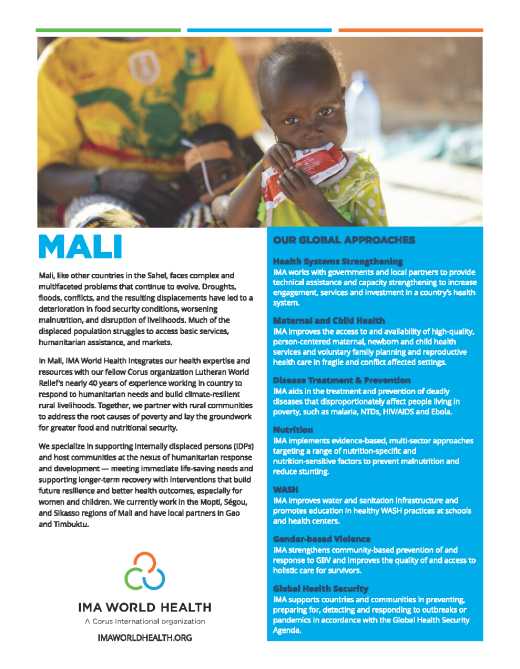Improved Health Service Delivery (IHSD) in Haiti
Project Overviews
Improved Health Service Delivery (IHSD) in Haiti
According to the WHO, Haiti has the worst health indicators in the Americas – the highest rates of infant and maternal mortality, malnutrition and persons living with HIV/AIDS. Many Haitians living in poverty lack access to potable water and quality health care and are regularly exposed to serious waterborne illnesses as well as neglected tropical diseases (NTDs). The nation grapples with a long-standing political, security and humanitarian crisis, which has severely impacted its health system.
Funded by the U.S. Agency for International Development (USAID), IMA World Health implements the Improved Health Service Delivery – Integrated Health Resilience Activity (IHSD) in collaboration with its consortium of local partners — Centres de Développement et de la Santé, Zanmi Lasanté, FONDEFH, FOSREF, Konesans Fanmi. IHSD increases access to integrated health care in Haiti with an emphasis on quality and patient-centric primary health care services to ensure a continuum of care and efficient use of resources. This includes technologies, best practices and innovation to support sustainable health service delivery through a decentralized approach in six departments: West, Central, Artibonite, North, Northwest and Northeast. Under the Global Health New Partnerships Initiative (NPI), the activity harnesses the potential of new and underutilized partners at all levels of the health system to accelerate the equitable availability of quality essential health services, to strengthen the capacity of local partners and to prepare local partners to transition to direct funding in the third and fourth years of implementation.
The latest quarterly updates from IHSD are available here:
IHSD in Haiti: Year 2, Quarter 2
IHSD in Haiti: Year 2, Quarter 1
Download Now Jan 10, 2024

